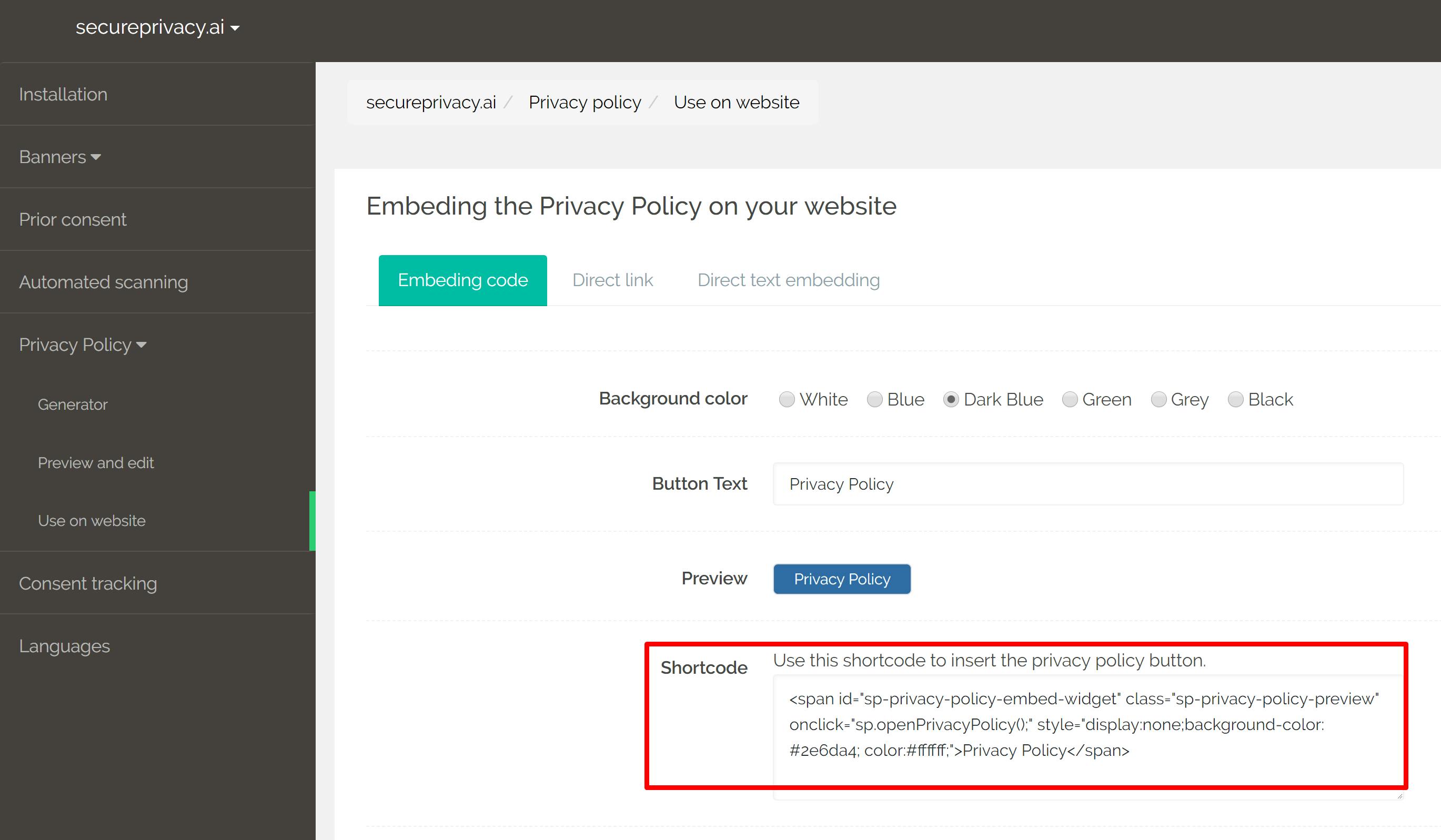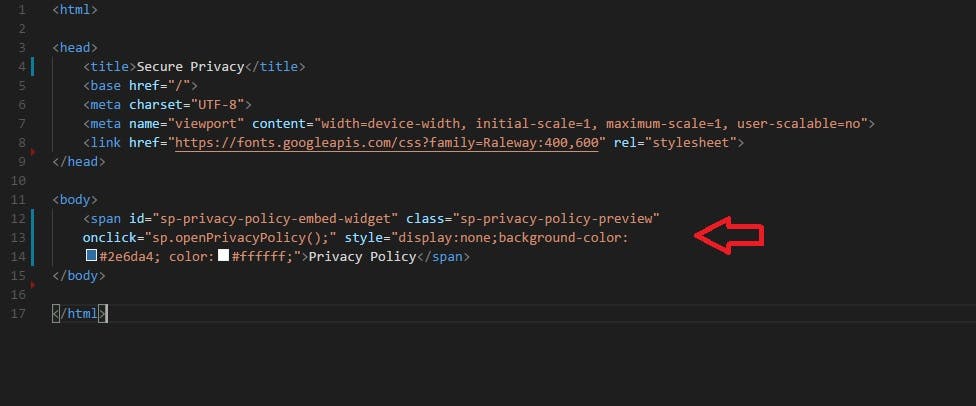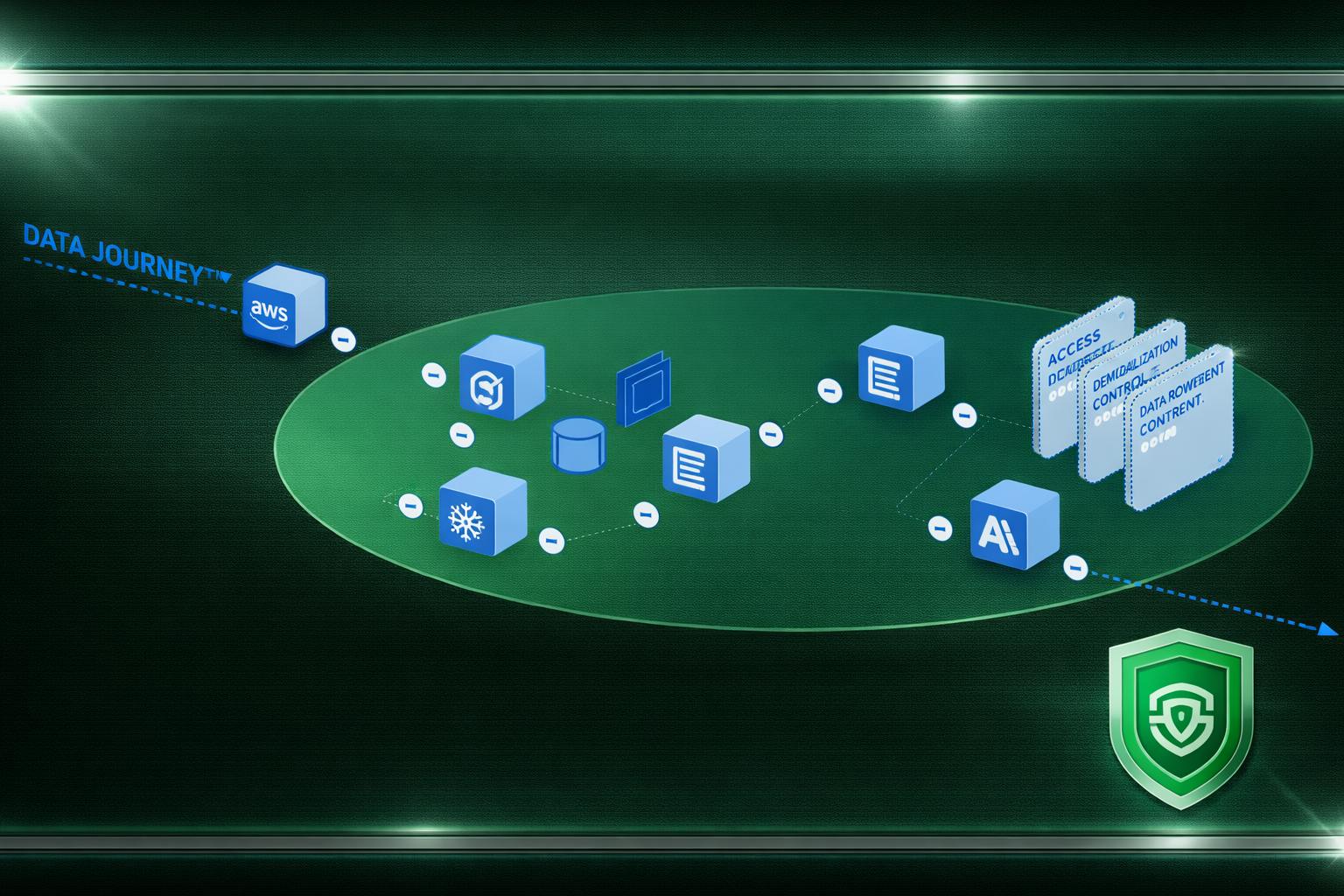How to add a Privacy Policy button on a website
Add a Privacy Policy button to a website, e.g. in the footer. This guide explains you how to add this with Secure Privacy.
With a Secure Privacy cookie and privacy policy generator you can add a privacy button on your website.
The image below shows an example of how it can look to have a privacy button on your website.
The screenshot is from our own website and the privacy button is located in the footer.
Note: This instruction assumes that you have already installed Secure Privacy on your website.

Follow the following steps to add a privacy button to your website:
1. Go to your account > Privacy Policy > Use on Website > Embedding code.
2. Select the background color that you prefer for your privacy button.
3. Copy the code.

4. Open your web page in any HTML editor.
5. Paste the HTML code anywhere inside the body section of your HTML page.

6. Save your page and your Privacy button will start appearing.
You might also be interested in this article:
- How to Be GDPR Compliant with Google Analytics
- See more on the requiresments for CCPA Privacy Policy

Privacy Governance for Financial Services: An Operational Framework for Banks and Fintech
Your compliance team has documented your GDPR obligations. But who monitors whether those obligations are being met on Tuesday afternoon when a new vendor API goes live?
- Privacy Governance
- Fintech

Consent Management for AI Training Data: How to Control LLM Crawlers and Enforce Opt-Out at Scale
Your organisation published a detailed research report six months ago. Last week, a competitor’s AI-powered tool started surfacing insights that mirror your proprietary methodology almost word for word. You did not license your content. You did not consent to its use. And you have no audit trail proving you ever tried to stop it.
- AI Governance
- Data Protection

What Is GDPR? A Practical Guide for Businesses
GDPR isn't a compliance checklist: it's an operating system for how your organization discovers, uses, protects, and proves control over EU personal data. Most businesses treat GDPR as a one-time legal project, building policies and spreadsheets that become outdated within months. That approach fails the moment regulators request current documentation, customers demand evidence of compliance, or your business scales beyond manual processes.
- Legal & News
- Data Protection
